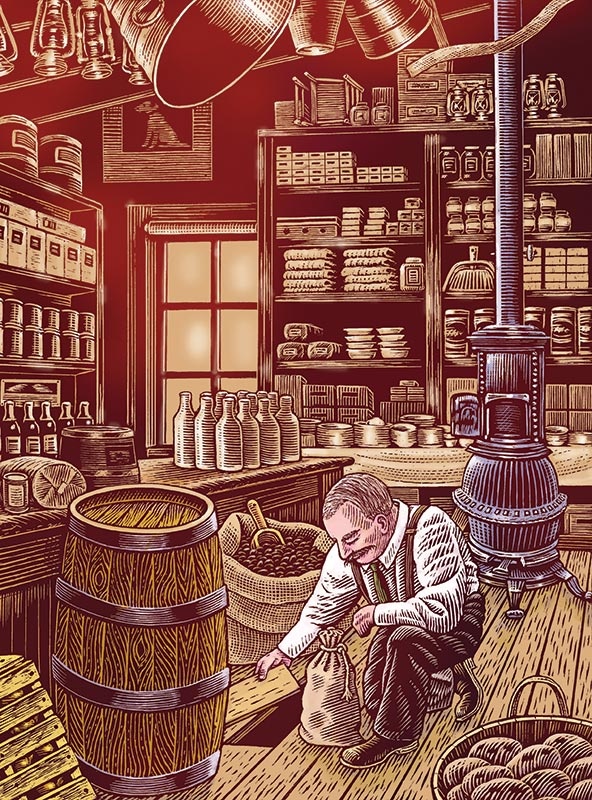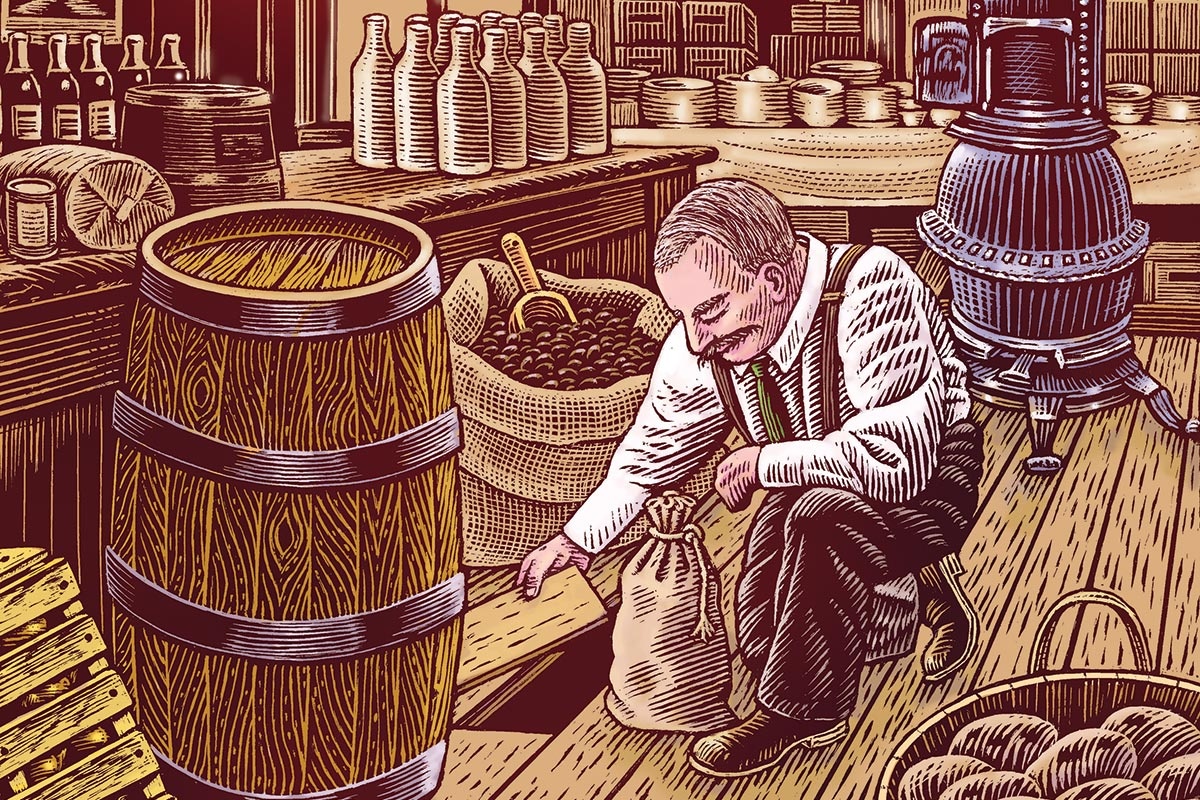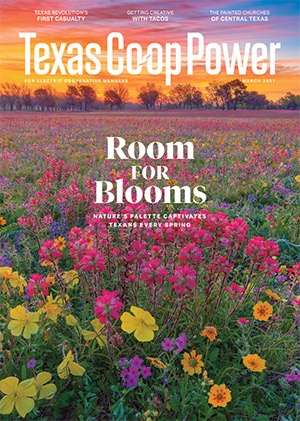The rough terrain of the Hill Country that drew ambitious ranchers in the 19th century now lures vacationers seeking spring-fed rivers and limestone bluffs. That scenic beauty belies the challenges faced by early stockmen who were new to Texas.
One of the ambitious early settlers was Charles Armand Schreiner, who established a store in 1869 and methodically built a sprawling operation that covered half a million acres with the fabled YO Ranch. His name also would define banking and mercantile businesses as well as the Kerrville-based university he helped found in 1923.
Today, the legendary YO lives on with the help of creative marketing, and throughout the Hill Country, stories of the Schreiner family and its influence abound.
Schreiner was born at Reichenstein Castle in Alsace-Lorraine, a picturesque region then part of Germany and now France. In 1852, Schreiner’s father, Gustave Schreiner, emigrated with his wife and five children halfway around the world, to Indianola. Once on Texas soil, they walked across the prairie to San Antonio in the sweltering September heat.
In a tragic twist, Gustave died from a rattlesnake bite 18 days after the family arrived in San Antonio. Sixteen-year-old Charles enlisted in the Texas Rangers. “It was the only way I could earn a man’s wages,” he explained decades later. After 2½ years as a Ranger, Schreiner took up ranching south of Kerrville. After his mother’s death in 1857, he built a cabin along Turtle Creek and opened a store, supplementing his income by providing wool and beef for the government.
Schreiner married in 1861 and shortly thereafter enlisted in the 3rd Texas Infantry to fight in the Civil War. He returned to Texas four years later, after the surrender at Appomattox, with five gold dollars in his pocket. To save his funds, he walked home from San Antonio rather than ride a stagecoach.
He found his ranch and herd in miserable shape and, after working to bring the operation back to profitability, decided a store would be more lucrative. Schreiner moved his family to Kerrville and opened another store with a partner on Christmas Eve 1869. Total sales the first day were $2.50 in cash and a bit more on credit. After 10 years in business, Schreiner bought his partner’s interest, and the Schreiner Mercantile Company grew into one of the largest general stores in the Southwest.

David Danz
Most ranching operations in Texas had, like Schreiner’s, suffered during the war. Millions of longhorn cattle roamed freely and by local standards were nearly worthless. Not so at the Kansas railhead markets. Schreiner joined other Texas cattlemen in discovering they could earn cash by gathering cattle and driving them north. The Western Trail plowed right through Kerrville, and Schreiner’s store raked in payments in Spanish gold doubloons worth $16 each. Schreiner used an ax to cut coins into pieces so he could make change.
Soon cowboys began to hand their cash over to Schreiner for safekeeping. Each night he hid his customers’ money along with his own in a box under the floor and moved a barrel of salt over the stash. Occasionally, thieves stole merchandise from the store, but none discovered the cache under the floor. The operation grew with the region, and Schreiner chartered a bank and appointed his son as cashier, a job L.A. Schreiner held until he was nearly 100 years old and the private bank had become a chartered national bank.
Elected captain of a home guard unit in Kerrville, Schreiner also served as a county and district clerk. He increased his holdings by acquiring land (paying from a penny to 50 cents an acre) and stocking it with cattle. Later he diversified into sheep and goats, and in 1880 he purchased the YO Ranch, most of which remained in his family for more than a century.
Kerrville Mayor Bill Blackburn acknowledges the accomplishments of Schreiner and his family. “There was little farmland in Kerr County,” he says, “and that left ranching, which was not easy because the soil was not deep and [was] rocky.”
Schreiner built great wealth from his enterprising, Blackburn says, but especially from wool and mohair production. Other Texas ranches enjoyed long-lasting success, but Schreiner’s stands out for overcoming the merciless Hill Country landscape.
Martha Deeringer, a Heart of Texas EC member, lives in McGregor. Read more of her work at marthadeeringer.com.


